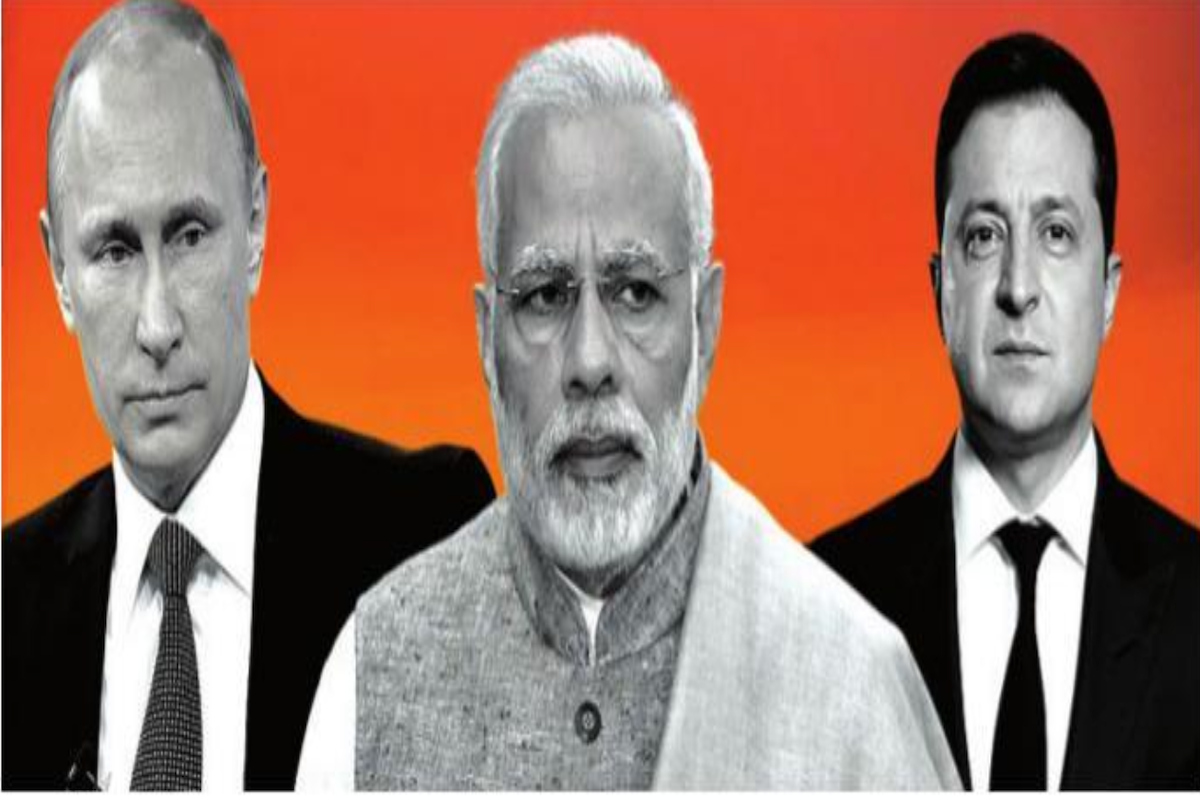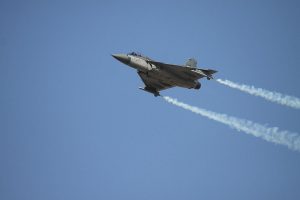India’s approach to the Ukraine crisis being equidistant, independent, and balanced came under scrutiny within the country and outside. The sustainability of such an approach was called into question with Russia and United States and Nato allies pulling India in different directions. However, the Indian government consistently maintained the direction of its foreign policy despite mounting international pressures.
The high-level visits of world leaders in March-April beginning with Japanese Prime Minister Kishida to Chinese Foreign Minister Wang Yi and later his Russian as well as British counterparts, Sergei Lavrov and Liz Truss respectively made it evident that in the war of optics, both sides thought Indian support could shift the balance their way.
India though had its own line to tow. Over the years, New Delhi’s policy framework has evolved, and it is a votary of a multi-polar, rule-based democratic world order as part of her principled approach to international relations. India has always believed that a just and democratic international order is in the interest of all, big and small nations. In fact, this accommodative and humane approach dictated her responses to the Covid-19 pandemic, including Vaccine Maitri and the provision of vaccines under the Quad mandate.
The ongoing, Russo-Ukraine crisis has only underlined the significance of the collective responses of all countries vis-à-vis a minuscule minority of elite nations. Indian foreign policy mandarins have been arguing for this broad-based cooperation and consultations for eternity. In this context, the United Nations General Assembly’s recent resolution for a peaceful, diplomatic and negotiated settlement to the Ukraine crisis can be argued to be an endorsement of India’s line of argument in global affairs.
In the coming months, multi-polarity as an approach will again come on centre stage when the Quad summit-level meeting will be held on May 24 in Tokyo. Quad is bound to discuss Asian affairs, diverting the attention from Europe and refocus- ing on Asia. Even at the BRICS summit to be hosted by China on June 23- 24, India is going to rally support for a balanced, equitable, multipolar and peaceful world order.
This summit has a special significance in Chinese politics as well. Since BRICS and Quad are going to place the Indo-Pacific prominently in the focus, the success of the summit to be hosted by President Xi Jinping three months ahead of his intended declaration of a third term as China’s President is of utmost importance for the Chinese leadership. Effectively, the success of this summit will be a coup which will seek to consolidate President Xi’s leadership in world affairs.
BRICS and Quad are not the only summit-level meetings taking place. The extended G-7 summit will be held at Schloss Elmau in the Bavarian Alps between June 26 and 28 under Germany’s Presidency. Here again, it is expected that the Indian leadership will argue the virtues of multi-polar world order. One can argue that Europe should see the benefits of a multipolar world, especially since the Ukraine crisis has shaken the continent, and after almost 80 years, Europe is facing war in its midst. Certainly, times have changed for them and the old world order does not seem to serve its purpose. How the European leadership reorients its security apparatus will be intriguing to witness and will have direct repercussions on India’s multipolarity argument.
One common link between the three crucial summits is India’s ferociously argued stance to look after its crucial strategic interests before the country decides to side with any party. This stance will invariably gravitate international attention away from the transatlantic region to the Indo-Pacific. Though the Ukraine crisis has kept the world focused on European developments, it is Asian matters which will decide the next round of world politics.
From the Indian perspective, border issues with China and developments in Afghanistan after the unceremonious departure of the USA and the inception of Taliban rule are clear and present concerns, which eclipse all other international developments. The spillover effect of these issues and their ramifications cannot be overlooked in the South Asian region.
Thus, when India participates in the Quad and BRICS summits, India’s diplomatic deftness and agility will be tested. It is pertinent to keep in mind that domestic compulsions and national interests have dictated India’s foreign policy articulation. Every country is guilty on this count and India is no exception. In the Ukraine crisis, India came out very well, by weighing the cost-benefit analysis relative to strategic gains and pursuing her economic and development interests. This approach may have ruffled a few feathers, with Russia and China on one side and US as well as Europe on the other.
It is clear that while the US and Europe saw the Ukraine crisis as an opportunity to put Russia down once and for all, China was testing the waters for its own Taiwanese adventure as well as Washington’s resolve to protect its allies. The fact that Europe and Japan have not done away completely with energy sourcing from Russia is a grim reminder of their national interests preceding all other considerations. In this backdrop, countries like India being asked to pick a side by those powers is a cruel joke.
Apart from an equidistant foreign policy approach informed by her national interests, the Indian call for a reality check before the imposition of economic sanctions for buying oil from Russia shows the seriousness of its approach given that Europe and Japan source energy from Moscow. During the visit of Foreign Minister S Jaishankar to the USA, he explicitly clarified this fact in the face of American pressure created by the visit of their Deputy NSA, Daleep Singh. That Secretary Blinken had to state that America understands Indian predicament only proves India’s significance in American plans for the 21st century.
The superimposition of multipolarity in Indian strategic relations has evolved over the years. Enhanced interdependence among nations has reduced the chances of exclusive, impermeable groups or blocs. Hence, multipolarity is not just India’s position; other countries have gravitated this way as well. For example, the US move to float Quad instead of going solo in the Indo-Pacific region in the face of an assertive China is a textbook example of multipolarity. It can be argued that the USA seems to be unwilling to play the role of a lone ranger in the South China Sea, especially after Afghanistan and Iraq.
Even China and Russia may need dependable allies. With the spread of Covid-19 in Chinese financial nerve centres like Shanghai and the grim situation in Ukraine after three months of aggression with no conclusion in sight, the two powers are under intense international pressure. This has forced both Beijing and Moscow to enlist new allies. Russia in particular will need its all-weather friends like India, given the crippling sanctions slapped on it by the US and its Nato allies.
These different yet related developments point to the imperative for active support and cooperation of the comity of nations. Hence, a greater premium will be placed on cooperation and since more countries will have a say in global decision making, a rule-based democratic international order will become the only solution in the post-Ukraine world.
The Indian advocacy of multipolarity with an eye on her own interests is increasingly an attractive policy orientation. And when Prime Minister Modi attends these meetings, he will be symbolizing this thrust of multi- alignments without any antagonism, because at the end of the day, it is not changing but the national interest that is the only constant.
(The writer is a doctoral scholar at Jawaharlal Nehru University and contributing fellow at the Centre for Integrated and Holistic Studies, New Delhi.)












